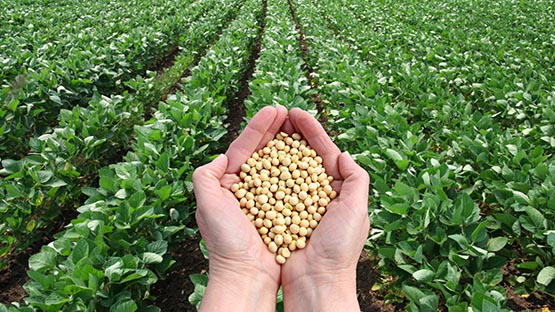
The lower Tidewater region is typically the hottest in Virginia according to data from the National Oceanic and Atmospheric Administration.
Certain crops, peanuts and cotton in particular, grow better in the heat, whereas heat can cause problems with other crops.
Virginia Cooperative Extension agent Elizabeth Cooper works with farmers in Suffolk and Surry and Sussex counties where these summer crops are a cornerstone of the regional economy, along with corn and soybeans.
“There’s a reason we’re one of the northernmost areas producing cotton and peanuts on the Eastern Seaboard,” Cooper said. “The heat we have out here is what drives the production and yield of both of those crops. They need what we call heat units, or growing degree days, for the crops to meet certain growth stages at certain times and produce the yields we need to be profitable.”
State statistician Herman Ellison of the National Agricultural Statistics Service reported abnormally dry-to-moderate drought conditions statewide in late July, with hot, humid weather and spotty rain.
“I remember my daddy said cotton likes good, hot weather, but it doesn’t like a desert,” said farmer Richard Gwaltney, who also serves as Nansemond County Farm Bureau president. “It needs some rain for a good crop but does well at high temperatures. Peanuts are good in hot weather too, though humidity can cause disease. With low humidity and hot weather, they’ll do great.”
Rain has been hit or miss at Gwaltney Farms. A shift to no-till farming practices in the last 20 years preserves more moisture in the soil.
“It works like a sponge to hold that moisture, which is helpful in a dry year,” Gwaltney said. “And there has been a lot of breeding in corn varieties that make them more tolerant to drought, especially with sandy land where you know it’s going to be dry.”
Cooper said farmers can further protect crops from heat stress through irrigation systems and help livestock stay cool by providing shade cloths or stands of trees.
Cooper’s outlook is generally optimistic for this summer’s growing season in the lower Tidewater.
“We have some sections of the counties that look fantastic and others that could use a few shots of water to get them through,” Cooper said. “Overall, though, crops and quality are looking pretty good across the counties that I cover.”










